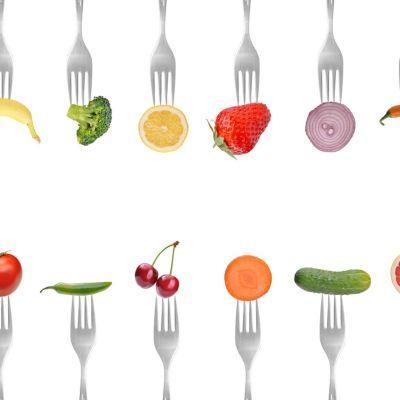
THEyour bottom line it is a more common disorder than you think; about half of people suffer from it, at least periodically, more or less markedly.
If the halitosis is not of a pathological nature, that is, when it is not secondary to a disease, much can be done with a proper oral hygiene and with the right diet.
Halitosis, which foods to exclude from the diet
The main causes of transient halitosis are poor oral hygiene and the consumption of foods that promote it.
They negatively affect the smell of the breath all foods that weigh down digestion:
> white sugar, sweets and sugary drinks;
> red, smoked and sausage meats;
> excess of dairy products and aged or very tasty cheeses;
> all products that are too refined;
> fried food.
Other foods that can cause bad breath are garlic, onion, leek and spices.
To combat bad breath it is advisable greatly limit the consumption of coffee e alcohol, including wine and beer.
One of the common causes of bad breath is the cigarette smoke; consequently, those who want to have fresh breath should not smoke.
Natural remedies for bad breath for a kiss-proof mouth
Garlic and halitosis
Garlic, as we know, does not favor a good smell of breath and in fact we have just mentioned it among the foods that can cause halitosis.
Garlic, however, is very healthy and would be a shame to completely exclude it from the diet because of its bad smell.
What to do then? It should be combined with the right foods. It has in fact been observed that lemonade, green tea, mint, parsley and, in general, foods rich in polyphenols help neutralize the smell; in fact, they contain enzymes capable of accelerating the breakdown of sulfuric compounds that are at the base.
Halitosis, the ideal diet and the right foods to fight it
To prevent halitosis and fight it, it is advisable to follow a balanced and healthy diet, favoring the consumption of Whole grains, easily digestible proteins (e.g. eggs and small fresh fish), seasonal fruit and vegetables.
When halitosis is due to excessive stomach acid, however, care should also be taken to limit the consumption of fruit, which could ferment, thus contributing to the disorder.
Still among the fruits, however, there are foods that are very useful for maintaining a fresh breath; strawberries, for example, contain xylitol, a substance that helps prevent the formation of dental plaque. Raw apples, on the other hand, eliminate components from the mouth that give an unpleasant smell to the breath, such as, for example, allyl sulphide.
A natural, simple and effective remedy to combat halitosis is the chew a few leaves of peppermint fresh; keeping a plant on the balcony can therefore be a practical breath-saving idea.
Obviously, regardless of the diet, if you do not take care of oral hygiene you cannot fight halitosis. In addition to always keeping the teeth clean and, more generally, the oral cavity, it is important go to the dentist periodically for a more thorough cleaning and for a check that excludes the presence of caries.


























